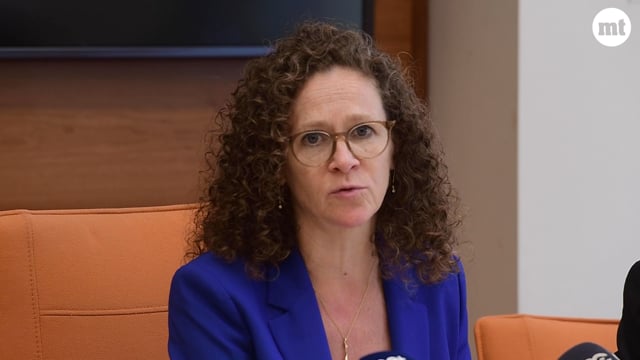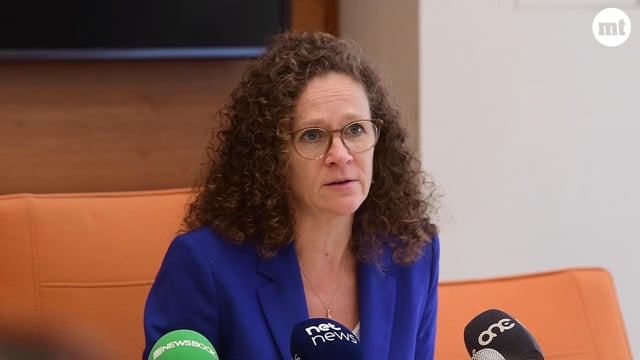[WATCH] Maltese justice ‘excruciatingly slow and half-hearted’, rule of law MEPs conclude
The European Parliament’s civil liberties committee MEPs acknowledge Malta’s reform process since 2020 but says it lacks speed and is sometimes done half-heartedly


Justice delayed, justice denied was the key takeaway message during a delegation visit to Malta from MEPs in the European Parliament’s civil liberties committee.
Sophie In’t Veld, the chairperson of the rule of law working group in the committee, described Malta’s judicial process as “excruciatingly slow”, owing to a lack of visible investigation and prosecution, during a press conference on Wednesday.
“It’s shocking that in four and a half-years since the murder of Daphne Caruana Galizia no justice has been served,” she pointed out. “The alleged mastermind has not yet been convicted.”
In’t Veld turned to a similar murder case in Slovakia, where journalist Ján Kuciak was killed in 2018. She said that the murder case has since been closed, with the mastermind convicted. Some politicians that were the subject of Kuciak’s investigative work have also been charged. “It can be done,” she said.
She acknowledged efforts from Maltese authorities to strengthen rule of law and combat corruption, and noted cross-party efforts to implement recommendations from GRECO and from the public inquiry into the murder of Daphne Caruana Galizia.
“On investigation and prosecution, additional capacity is being made available,” she said, noting an ongoing reform of the Attorney General’s powers as well as new procedures for judges.
The committee also welcomed increased efforts from the FIAU, adding that financial and economic crimes, specifically related to corruption and money-laundering, were being prosecuted rigorously. “We will monitor these developments closely.”
However, In’t Veld mentioned that practical obstacles remain to media freedom and pluralism, especially with regards to access to information and non-transparent funding of media outlets.
She said that the committee was still concerned with the use of SLAPPs, and was particularly dismayed that some people have still not dropped such cases against Daphne Caruana Galizia. These cases have since been inherited by her family. “It’s quite disgusting that those cases have not been dropped.”
“Our overall message is that yes, there has been a reform process, but it lacks pace, speed, and sometimes we feel that some reforms are half-hearted and incomplete,” she said.
A full-time parliament? Not yet…

In’t Veld added that the committee was surprised to see that Malta’s parliamentary members work on a part-time basis. She said that all MPs, regardless of affiliation, should be equally equipped to scrutinise government.
“I find it difficult to imagine how you can implement reforms and process European legislation on a part-time basis with little means. In the European Parliament we each have our own staff. It takes them a long time to process legislation, let alone for 79 part-timers.”
She said that various arguments had been put forward during the delegation’s visit on whether the parliament’s administration should remain as is, or if a hybrid formula should be adopted.
“The response was a mixed bag, but it seems there’s no appetite for such a reform right now. But it wasn’t rejected outhand.”
She also raised concerns on the high debts faced by Malta’s two big political parties, and said this needs to be addressed urgently.
“In any political system, a party should be extremely worried if it has tens of millions of debt. You wonder to whom it has these debts. It influences the course of the party. Do you still remain fully independent? We’re talking about amounts that are tenfold the budget of my political party in my home country,” she said.

.png)



















